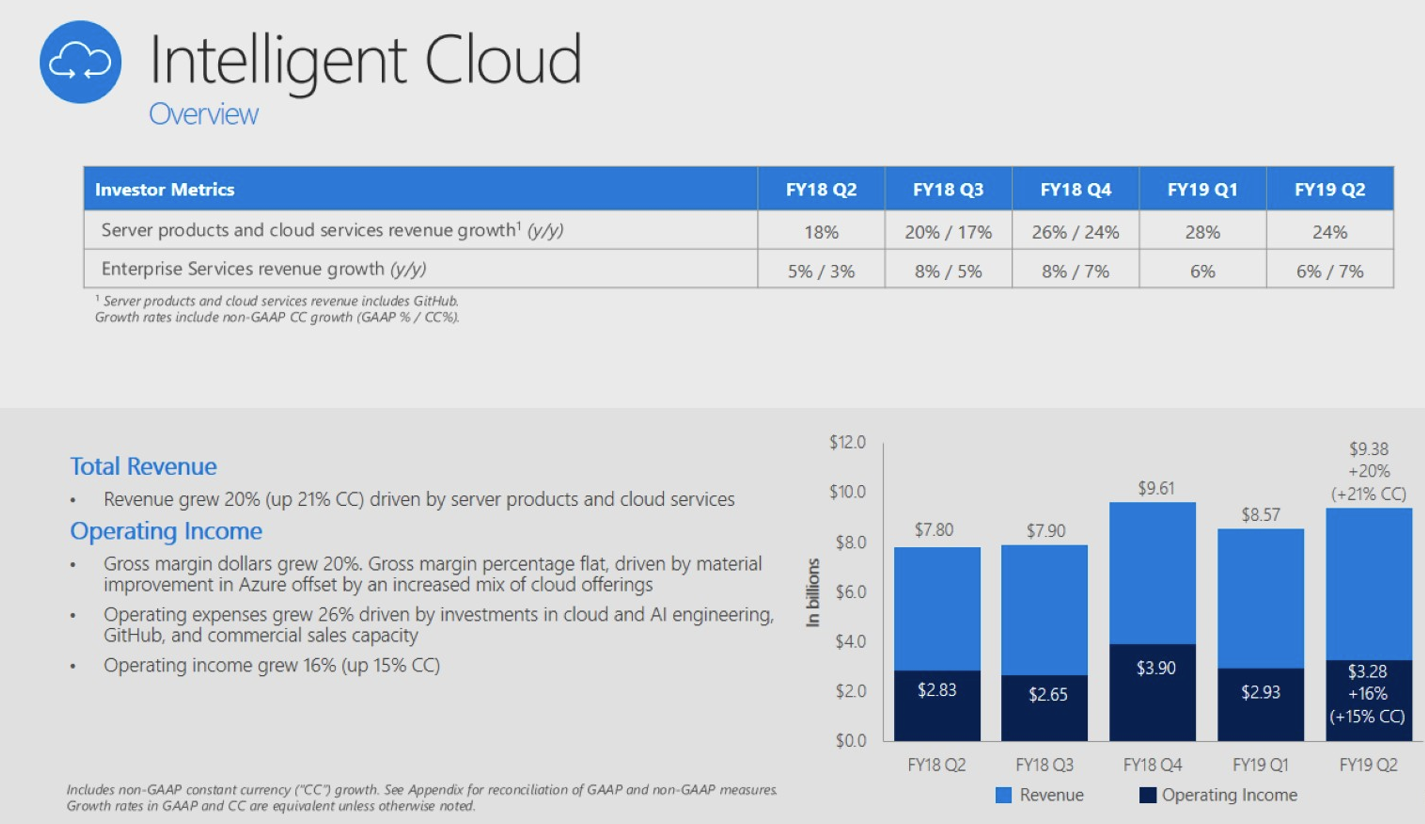Microsoft announced its quarterly earnings today. For the most part, those earnings came in around Wall Streets expectations, without any major surprises and a total revenue of $32.5 billion. Given the company’s bets on cloud computing, what’s maybe most important, though, is that Azure recorded revenue growth of 76 percent. That’s the same growth the company booked in the last quarter and still respectable growth, but depending on your perspective, you can also read it as growth flatting out.
“Our strong commercial cloud results reflect our deep and growing partnerships with leading companies in every industry including retail, financial services, and healthcare,” said Satya Nadella, CEO of Microsoft. “We are delivering differentiated value across the cloud and edge as we work to earn customer trust every day.”
Azure falls into Microsoft’s “Intelligent Cloud” category, which includes other server products and enterprises services. In total, those services booked $9.4 billion in revenue, up 20 percent. Commercial cloud revenue was up 48 percent year-over-year.

As for the rest of the earnings, it’s worth noting that revenue from Microsoft’s Surface devices was up 39 percent, but that was expected, given the time of the year and the fact the company released a number of new devices in recent months. Gaming, too, was a strong area, with Xbox software and services up 31 percent.
You can find the full release here.
from TechCrunch https://tcrn.ch/2FXH2aM
via IFTTT
Comments
Post a Comment